 EDITOR'S PICK
EDITOR'S PICK
Renault Races Past Hydrogen with All-Electric Alpine Flagship
26 Aug 2025 | Synopsis
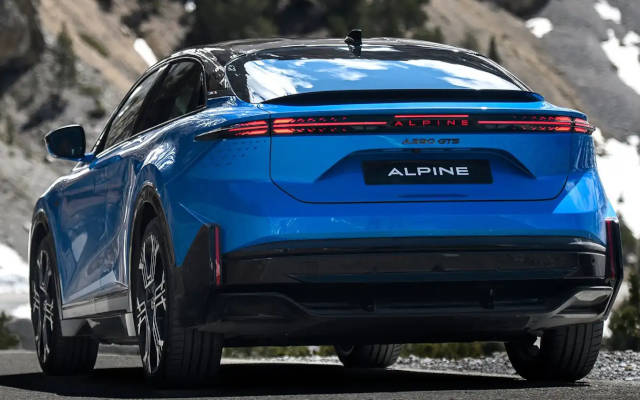 Renault signals a bold pivot beyond hydrogen with Alpine's 470 hp electric 390 GTS. High hydrogen costs, poor infrastructure, and energy inefficiency drive the move toward scalable EVs. Unveiled by Renault and Alpine, the GTS blends luxury, performance, and national pride - boasting 345-mile range, premium design, and an "overtake" boost. It's a clear statement: France sees electrification as the future of high-performance mobility.
Renault signals a bold pivot beyond hydrogen with Alpine's 470 hp electric 390 GTS. High hydrogen costs, poor infrastructure, and energy inefficiency drive the move toward scalable EVs. Unveiled by Renault and Alpine, the GTS blends luxury, performance, and national pride - boasting 345-mile range, premium design, and an "overtake" boost. It's a clear statement: France sees electrification as the future of high-performance mobility.Rivian CEO Says It 'Blows My Mind' That The US Auto Industry Is Reprioritizing Capital Toward Gas-Powered Vehicles
26 Aug 2025 | Synopsis
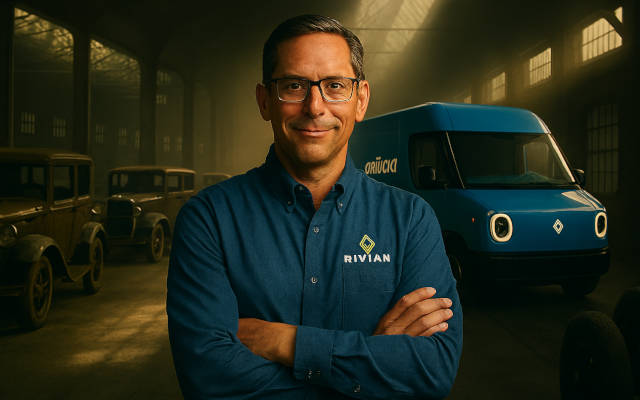 Rivian CEO RJ Scaringe criticized continued U.S. investment in internal combustion engine (ICE) vehicles, calling it a strategic mistake. He argued that pouring billions into gas-powered platforms delays progress and risks falling behind global EV leaders. Scaringe emphasized that electrification is inevitable and that legacy automakers must pivot faster to remain competitive in a rapidly shifting market.
Rivian CEO RJ Scaringe criticized continued U.S. investment in internal combustion engine (ICE) vehicles, calling it a strategic mistake. He argued that pouring billions into gas-powered platforms delays progress and risks falling behind global EV leaders. Scaringe emphasized that electrification is inevitable and that legacy automakers must pivot faster to remain competitive in a rapidly shifting market.Electric Aviation's Summer Surge: Startups, Certification, and the Race to Redefine Flight
25 Aug 2025 | Synopsis
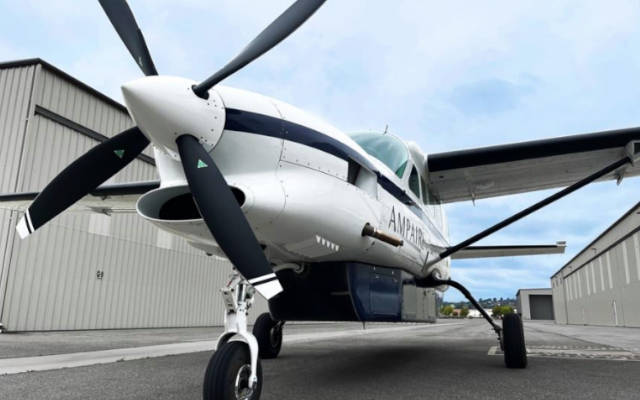 Electric aviation is accelerating as startups like Joby, Archer, Ampaire, and ZeroAvia push toward FAA certification and commercial launch. New FAA rules streamline approval for powered-lift aircraft, while propulsion strategies—battery, hybrid, and hydrogen—diversify range and infrastructure needs. Despite regulatory hurdles, investor confidence and airline partnerships signal that 2025 may be the breakout year for sustainable flight.
Electric aviation is accelerating as startups like Joby, Archer, Ampaire, and ZeroAvia push toward FAA certification and commercial launch. New FAA rules streamline approval for powered-lift aircraft, while propulsion strategies—battery, hybrid, and hydrogen—diversify range and infrastructure needs. Despite regulatory hurdles, investor confidence and airline partnerships signal that 2025 may be the breakout year for sustainable flight.Ford Is A Bellwether: Electric Vehicles Are Coming, Despite Policy Shifts By Oil Bought-Off American Presidency
25 Aug 2025 | Synopsis
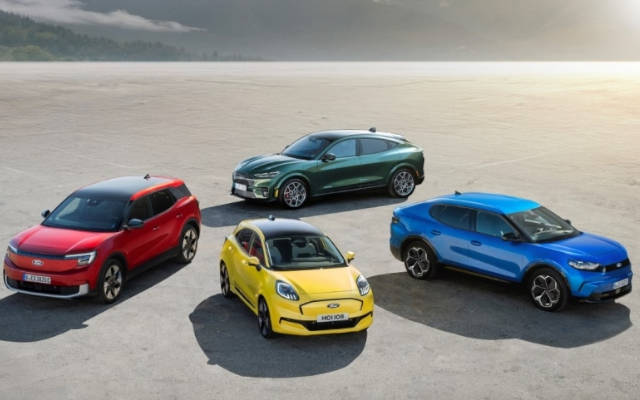 Despite Trump's rollback of EV incentives and emissions rules, Ford is doubling down on electrification. It announced a $5B investment in a modular EV platform and a sub-$30K electric pickup by 2027. Driven more by Chinese competition than U.S. politics, Ford aims to streamline production and stay globally competitive. EV sales remain strong outside Tesla, and legacy automakers are shifting toward affordable models and lithium iron phosphate batteries.
Despite Trump's rollback of EV incentives and emissions rules, Ford is doubling down on electrification. It announced a $5B investment in a modular EV platform and a sub-$30K electric pickup by 2027. Driven more by Chinese competition than U.S. politics, Ford aims to streamline production and stay globally competitive. EV sales remain strong outside Tesla, and legacy automakers are shifting toward affordable models and lithium iron phosphate batteries.An EV Road User Charge Is Looming. Could It Slam The Brakes On Australia's Clean Car Transition?
25 Aug 2025 | Synopsis
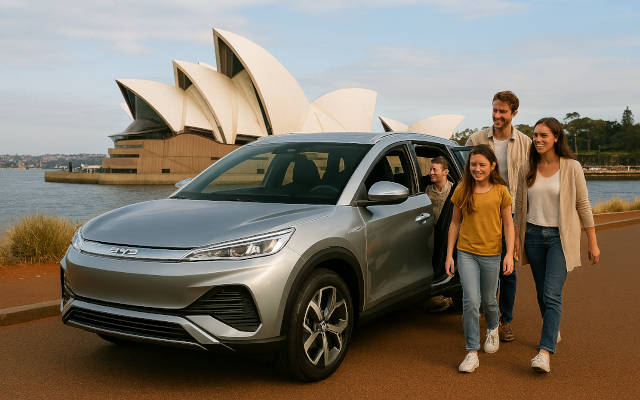 As Australia's electric vehicle fleet grows, the government is considering a road user charge to replace dwindling fuel excise revenue. A proposal from New South Wales suggests a fee of 2.97 cents per kilometre for battery EVs, with collection potentially based on distance driven. Critics worry this will hinder the clean transport transition, arguing the charge should apply to all vehicles, not just EVs.
As Australia's electric vehicle fleet grows, the government is considering a road user charge to replace dwindling fuel excise revenue. A proposal from New South Wales suggests a fee of 2.97 cents per kilometre for battery EVs, with collection potentially based on distance driven. Critics worry this will hinder the clean transport transition, arguing the charge should apply to all vehicles, not just EVs.
 Si Exclusive
Si Exclusive
EV Alarmism: Common EV Issues Article Analysis
12 Oct 2025 |  The GoBankingRates article highlights real EV concerns - battery costs, charging issues, part shortages, and recalls - but overstates their frequency and impact. Most problems are rare, covered under warranty, or brand-specific. Charging and battery failures are uncommon, and recalls affect gas cars too. The article lacks comparative data and context, making its claims seem more alarming than typical EV ownership realities.
The GoBankingRates article highlights real EV concerns - battery costs, charging issues, part shortages, and recalls - but overstates their frequency and impact. Most problems are rare, covered under warranty, or brand-specific. Charging and battery failures are uncommon, and recalls affect gas cars too. The article lacks comparative data and context, making its claims seem more alarming than typical EV ownership realities.
Rivian's Infotainment Revolution: AI at the Wheel, No Smartphone Required
11 Oct 2025 |  Rivian's infotainment system replaces CarPlay with a native AI-powered interface backed by Amazon and Volkswagen. It offers smart navigation, voice control, music/video streaming, and cloud-based personalization. AM radio is excluded, prompting bipartisan legislation to mandate its return. Autonomous driving integration is planned, with updates rolling out in 2025 and full features expected in the R2 by 2026.
Rivian's infotainment system replaces CarPlay with a native AI-powered interface backed by Amazon and Volkswagen. It offers smart navigation, voice control, music/video streaming, and cloud-based personalization. AM radio is excluded, prompting bipartisan legislation to mandate its return. Autonomous driving integration is planned, with updates rolling out in 2025 and full features expected in the R2 by 2026.
Hydrogen's Flight Path: Fuel Cells, Turbines, and the Economics of Clean Aviation
10 Oct 2025 |  Aviation is shifting from Jet A to four fuel systems: electricity, hydrogen (fuel cell and combustion), SAF, and petroleum. Fuel cells suit short-haul aircraft; hydrogen combustion may power long-range jets. SAF bridges legacy fleets. Hydrogen costs - $5-$7/kg today, possibly $2/kg by 2040 - impact ticket prices and infrastructure decisions. Airport authorities, airlines, and governments will share deployment costs. Each fuel has distinct environmental pros and cons shaping aviation's net-zero future.
Aviation is shifting from Jet A to four fuel systems: electricity, hydrogen (fuel cell and combustion), SAF, and petroleum. Fuel cells suit short-haul aircraft; hydrogen combustion may power long-range jets. SAF bridges legacy fleets. Hydrogen costs - $5-$7/kg today, possibly $2/kg by 2040 - impact ticket prices and infrastructure decisions. Airport authorities, airlines, and governments will share deployment costs. Each fuel has distinct environmental pros and cons shaping aviation's net-zero future.
 12 Oct 2025 13:14:55 UTC |
RECENT PODCASTS
VW ID.1 - Tesla Cybertruck News - Tesla Robotaxi Competition
SEARCH RSSTREAM
 57 New Postings In Past 24 Hours
57 New Postings In Past 24 Hours
Category:policy
Region:NoAmerica
Date:12 Oct 2025
Category:finance
Region:NoAmerica
Date:12 Oct 2025
Category:finance
Region:NoAmerica
Date:12 Oct 2025
Category:energy
Region:NoAmerica
Date:12 Oct 2025
Category:mobility
Region:Europe
Date:11 Oct 2025
Category:mobility
Region:NoAmerica
Date:11 Oct 2025
Category:mobility
Region:Global
Date:11 Oct 2025
Category:mobility
Region:AsiaPacific
Date:11 Oct 2025
Category:energy
Region:AsiaPacific
Date:11 Oct 2025
Category:mobility
Region:NoAmerica
Date:11 Oct 2025
Category:energy
Region:Global
Date:11 Oct 2025
Category:mobility
Region:NoAmerica
Date:11 Oct 2025
Category:finance
Region:NoAmerica
Date:11 Oct 2025
Category:mobility
Region:NoAmerica
Date:11 Oct 2025
Category:energy
Region:Global
Date:11 Oct 2025